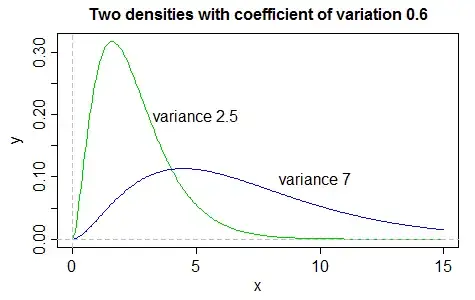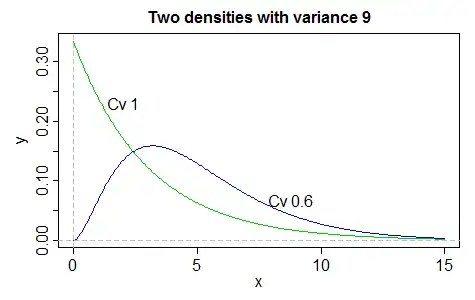The coefficient of variation is the standard deviation divided by the mean.
But Cv also deals with dispersion, can we use it to understand the degree of HOV?
If by dispersion, you mean 'standard deviation' or 'variance', then not unless you fix the mean at a constant: then changes is coefficient of variation would reflect changes in spread (and so changes in variance).
Consider:
You can have constant coefficient of variation while variance changes.
Consider a family of random variables with gamma distributions with fixed shape parameter, $\alpha=\alpha_0$ but varying scale parameter, $\beta$.
Since the coefficient of variation is only a function of $\alpha$, it will be constant, while the variance ($=\alpha\beta$) changes as $\beta$ changes.

You can even have constant variance while coefficient of variation changes.
Consider another gamma family, this time with $\alpha$ varying and with $\beta=k/\alpha$ for some constant $k$. Then the variance of every member of the family is $k$, while the coefficient of variation is different for each different $\alpha$.

So looking at (say) Levene's test won't directly tell you about coefficient of variation and differences in coefficient of variation won't tell you directly about variance. In either case, you can only tell by bringing the mean (or something that determines the mean given the other information) into it.
For example, if
$C_{v_1} > C_{v_2}$
where $C_{v_1}$ is the coefficient of variation for sample 1 and $C_{v_2}$ is the coefficient of variation for sample 2, can we say that the assume that samples 1 and 2 are differently dispersed?
Again, it depends on what you mean by 'dispersion'. As indicated in case 2. above, they might have identical spread and still differ in coefficient of variation, so if you mean 'different standard deviation' (or different variance), then no.
If instead you define 'dispersion' in terms of CV, then clearly you can say that, yes.

